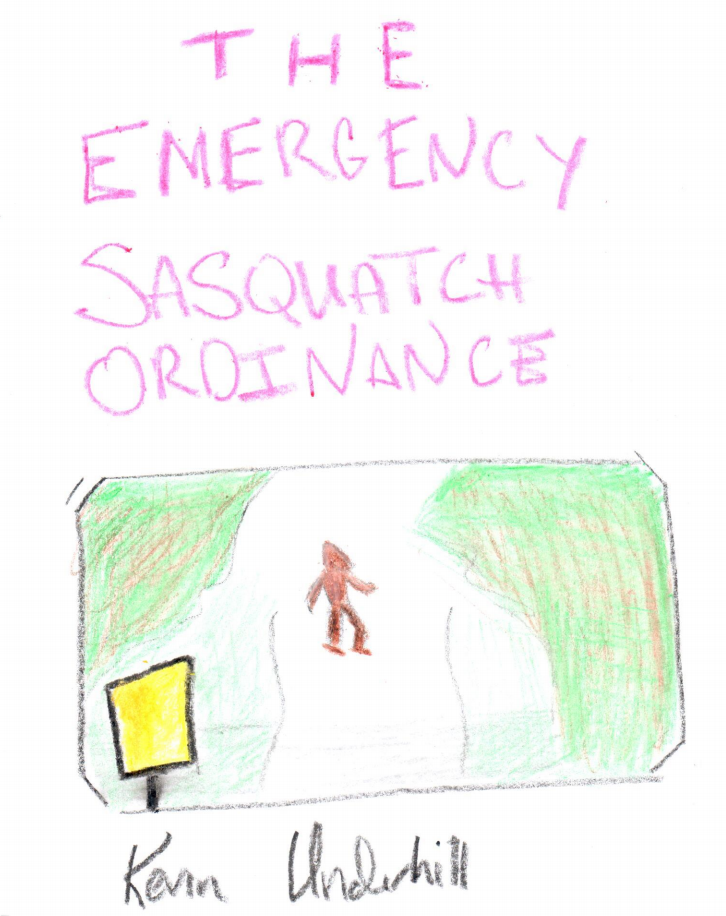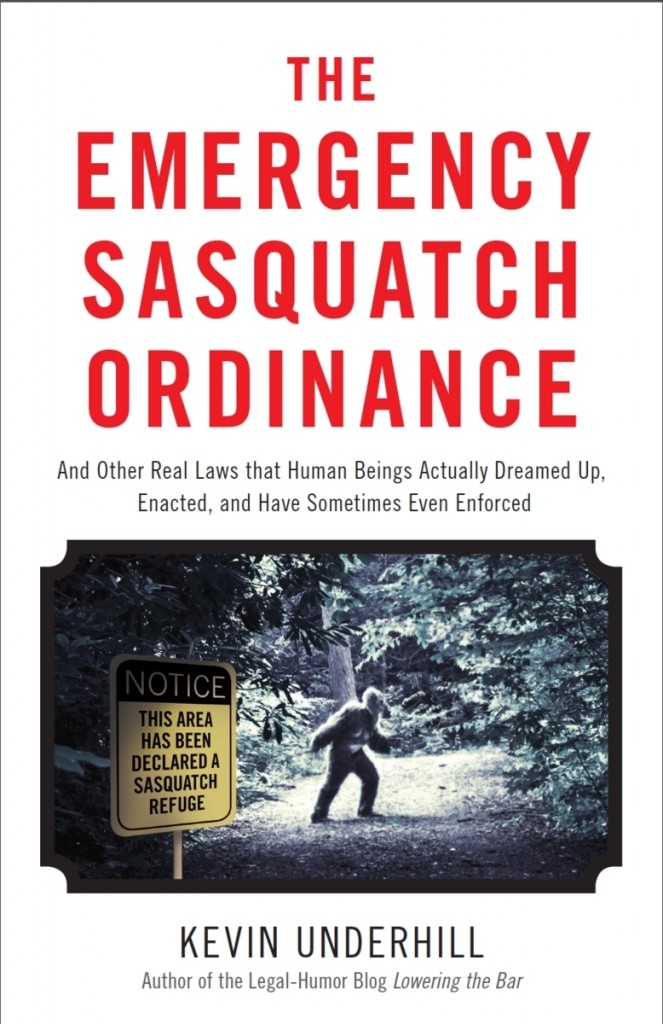It’s especially important to act quickly if you’ve been killed. (Fugly.com; seen via George Takei, and making the rounds on the internet).
Posts Tagged ‘humor’
“I am an artisanal attorney.”
“The vellum comes from the grass-fed cows of an area farm; to give the cows more agency in the vellum-making process, I let them choose the pumice I will treat their hides with after slaughter. I also make my own ink, using the ink of squid I raise myself in a PETA-approved salt-water aquarium in my office. …Don’t be lulled into a complacent life filled with …lawsuits that don’t reflect your uniqueness.” [McSweeney’s, parody]
“Acting like children”: Toronto judge rebukes feuding families
“The parties do not need a judge; they need a rather stern kindergarten teacher” is just one of the “by turns sarcastic, exasperated, and downright hilarious” lines in this instant-classic ruling by a Toronto judge admonishing two affluent families living next door to each other to lay down their legal feud [National Post, Lowering the Bar, ruling in Morland-Jones v. Taerk]
“Someday I hope to encounter a defective product…”
New Yorker cartoon that might work framed in a lawyer’s office.
New Kevin Underhill book on odd laws
Kevin Underhill, whose wonderful Lowering the Bar blog is often linked in this space, has a new book out on odd laws titled The Emergency Sasquatch Ordinance. Another of our favorite legal bloggers, Jim Dedman of Abnormal Use, has interviewed him about it and I was trying to decide which snippets to excerpt when I realized I liked the whole thing and should just ask to reprint it. So with Jim’s permission, here is the Abnormal Use interview with Kevin Underhill:
* * * * *
Book Review and Author Interview:
Kevin Underhill and The Emergency Sasquatch Ordinance
As lawyers, and denizens of the Internet, we have all received those crazy emails purporting to list strange and counter-intuitive laws. Usually, these emails forwards – traditionally sent by owners of AOL accounts – offer no effort to verify the existence of the laws cited therein (forcing us, if still interested, to turn to Snopes). Recently, Kevin Underhill, a legal humor blogger and partner at the San Francisco office of Shook, Hardy & Bacon L.L.P., has done what needed to be done: he researched all of these silly laws, sifted through the urban legends, and produced a book of unusual statues from both today and days of yore. As a lawyer himself, Kevin provided the citations to these laws, thereby proving that these laws actually did – or still do – exist. The result: The Emergency Sasquatch Ordinance, a very amusing book published earlier this year by the American Bar Association. The book is named for a 1969 Skamania County, Washington ordinance proscribing “any premeditated, wilful and wanton slaying” of a Sasquatch, Yeti, Bigfoot, or Giant Hairy Ape.
In this mighty new tome, Kevin alerts us to ancient laws once promulgated by the Greeks, Romans and other historic cultures. However, it’s the modern laws of our American states and localities which are the most amusing (and, of course, upon getting our hands on a copy of the book, we immediately flipped to the pages dealing with the Carolinas). From Kevin, we learn of South Carolina Code § 16-17-740, which makes it a crime to “sell or possess a novelty device commonly known as a ‘cigarette load’ which may cause a cigarette or cigar to blow up or explore after being lit.” Writes Kevin: “Information on the number of South Carolinians injured by cigarette loads over the years is difficult to come by, but I assume that the number is or was at one point substantial.” He also directs us to the South Carolina statutory prohibition on minors playing pinball and billiards (found in South Carolina Code § 63-29-2420 and 63-19-2430). Our favorite part: Pinball is banned outright for minors, but they can play pool with parental supervision or consent.). Again, writes Kevin: “The moral dangers of billiards and pinball themselves are not immediately apparent, although I notice that both involve physics and so maybe this open and scandalous display of ‘science’ is considered unseemly. Assuming that the danger arises from the kind of people who are (apparently) commonly found in these locations in South Carolina, we can conclude that pinball enthusiasts are considered a much greater threat, since youth pinball is illegal even with parental consent.” There must be something to this, as we also learn from Kevin that Alabama apparently bans secret passageways in its billiard halls. (Paging Professor Harold Hill on this point.). Finally, we learn of 17 North Carolina Administrative Code 04B.0312, which provides that “[a] rattlesnake milking exhibition for which an admission fee is charged is subject to the gross receipts tax imposed under G.S. 105-37.1.” After noting that this provision was enacted “[d]espite the risk that rattlesnake milkers might fleet the state in protest,” Kevin informs us that “rattlesnake milking for charity is not taxed, however.” We wonder what happened in 2000 to require the this 1976 rattlesnake statute to be amended. Perhaps we’ll never know.
You get the idea. The book is full of these sorts of laws and Kevin’s witty commentary on them. As you can see, this is no dry enterprise; Kevin is a funny guy, and the book can be enjoyed by lawyers and non-lawyers alike. Of course, we already knew this fact as long-time readers of his law blog, Lowering the Bar, on which he also produces amusing content on a frequent basis.
As a part of this review, Kevin was also kind enough to agree to a brief email interview with Abnormal Use.
1. What has been the response of lawyers and legislators to the books?
Those who have read the book appear to like it very much, although that statement will be a little awkward if your review says it sucks. If that is the case, I would encourage all readers (and non-readers who have someone willing to read to them) to ignore that review and buy the book immediately. As far as legislators are concerned, I have heard that law-revision projects are now being carried out in almost every English-speaking country as a direct result of the book. But I would take that with a grain of salt since the only time I have heard that was just now when I said it out loud in my office.
2. Has there been any effort to repeal any of the current laws you identified in the book?
Other than the effort I just mentioned, not to my knowledge. I’d have expected at least the nuclear-armed-dairy-farmer lobby to have taken some action by now. Papua New Guinea did repeal the Sorcery Act last year, but I can’t take credit for that.
3. Of all the modern laws you mention in the book, which is your favorite, and why?
It depends to some extent what you mean by “modern.” The Guano Islands Act of 1856 is one of my favorites and is still on the books, but it hasn’t been used in a while. I am a big fan of the Brazilian law that requires cell-phone companies to give a discount to people who stutter, and the surprisingly prevalent 316-word definition of “buttocks.” And just because they have popped into my head right now, I will also mention the state laws saying that a “riot” can include as few as two people (except in Alaska, where it takes six to riot).
Obviously I can’t pick just one favorite.
4. You have written much on taco-canceling. Do you foresee the taco-canceling litigation being the subject of a future book?
Probably not, if only because the efforts to turn this into a class action are likely to fail. Everyone who cancels a taco order has his or her own individual reasons for doing so. It’s not something that can be determined on a class basis. Except possibly in California, which is good news for me.
By the way, the image depicted at the top of this post is not the actual cover of The Emergency Sasquatch Ordinance. Rather, it is a carefully constructed recreation of said cover by GWB associate and Abnormal Use blogger Batten Farrar. We were inspired by a previous recreation of the cover which Kevin Underhill posted on his Lowering The Bar blog back in early March. You can see that post here. The actual cover to Kevin’s book is here:
(Click here to read Keith Lee of the Associate’s Mind law blog’s review of The Emergency Sasquatch Ordinance.).
* * * * * *
[end of reprinted Abnormal Use blog post]
From “Jokes and Targets”
A new book by British humor scholar Christie Davies (via Debra Cassens Weiss, ABA Journal) has a discussion of lawyer jokes, which, Davies says, surged in the 1980s in America in a way not seen in other countries:
…American attorneys in the late Twentieth Century who felt offended by lawyer jokes were trapped, because the television writers and their bosses did not care about the possible hurt feelings of individual lawyers, who for them did not matter, and lawyers’ organizations (which did have power) were only concerned with using television to manipulate public opinion about far more important questions. The rightly saw jokes as utterly insignificant by comparison. The only exception I know happened not in contemporary America but in Britain in the late 1940s, when a senior person from the Law Society was able to persuade the BBC to stop comedians from telling jokes about solicitors (attorneys) who absconded with their clients’ money. The deal was done quietly in that sly, behind-the-scenes British way, paradoxically known as a gentleman’s agreement….
[After rejecting as unreasonable the views of a Pennsylvania lawyer who finds in some American lawyer jokes an “invitation to genocide”:] Likewise, we may dismiss the thesis popular among lawyers that the jokes originated with big corporations, who had them invented to assist in their campaigns against being sued for damages…. jokes belong to the people… they cannot be created by decree, nor can they successfully be repressed…. They are not a thermostat, but they are a thermometer.
What happened in the 1980s especially that might have touched off a popular American interest in lawyer jokes? It’s a mystery! The book can be purchased here, while more about its author is here; David Conway wrote a review for Law and Liberty in 2012, as we noted. (& welcome Above the Law readers)
P.J. O’Rourke on that viral Supreme Court brief
The humorist speaks out on the now-famous amicus filing: “Cato did not ask me to write their brief for the same reason that you do not ask me to perform your appendectomy. … I was asked to read it and give it my endorsement because I am an expert on being run out of Ohio. Ask my mother.” He goes on to give Ilya Shapiro and Trevor Burrus kinder treatment than he does President William Howard Taft. [Daily Beast, earlier, the brief in Susan B. Anthony List v. Steven Driehaus, more on case from SCOTUSBlog]
Most outrageous video lawyer ad ever?
Pittsburgh criminal defense lawyer Daniel Muessig has set the bar high [Deadspin] More: Scott Greenfield, and yet more about whether criminal defense lawyers really do those things.
Funniest amicus brief ever
It’s actually on a serious subject: can a state (Ohio) purport to ban false, exaggerated or “truthy” speech about candidates, or does that impermissibly chill speech protected by the Constitution’s First Amendment? My colleagues Ilya Shapiro, Trevor Burrus and Gabriel Latner co-authored it on behalf of political humorist/Cato fellow P.J. O’Rourke in the pending SCOTUS case of Susan B. Anthony List v. Driehaus. Read it here, alongside Ilya Shapiro’s summary, and here’s David Lat of Above the Law calling it the “Best Amicus Brief Ever.“
“New Work: ‘Coyote v. Acme'”
We’ve mentioned Ian Frazier’s classic humor piece on the product liability suit filed by the hapless Wile E. Coyote against the Acme Corporation, purveyor of perennially disappointing bombs, anvils, rocket sleds, and other contraptions. Now “Pentagram’s Daniel Weil has reimagined designs for five of these gadgets, rendered as a series of highly detailed technical diagrams.” One reason the failure-to-warn element of the suit may be shaky: “The Coyote, like most males, never reads the instructions.” [Pentagram]



